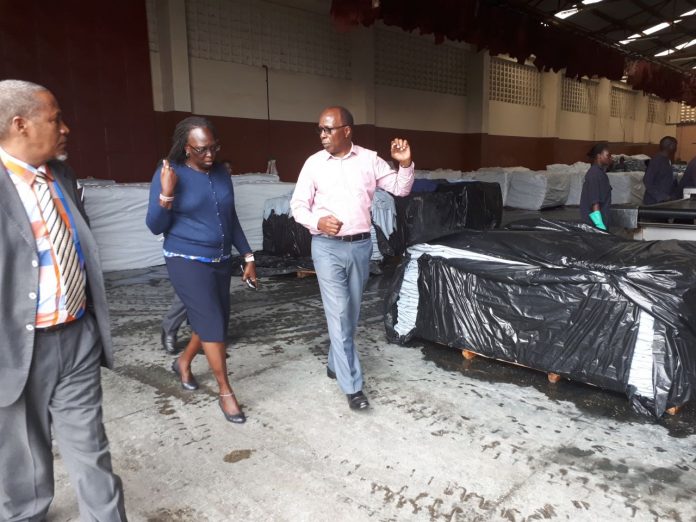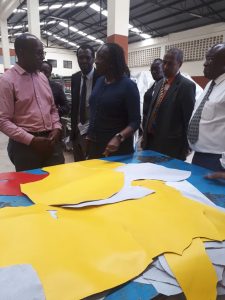Leather and textile processing firms have reaped benefits following President Uhuru Kenyatta’s directive calling for the industry’s revival.
The President said all military boots should be bought from local manufacturers. The government plans to process hides and skins before exporting them.
There is a plan to set up 5,000 cottage industries, invest in four leather parks and expand existing tanneries.
Industrialization PS Betty Maina has already started visiting some of these industries to appreciate what is going on at firm level.
The government plans to offer support via capacity building, training, creation of common manufacturing facility, and policy frameworks.
Among the factories visited was Reddamac leather industries owned by the Chairman of the Tanners Association of Kenya Robert Njoka.
In an interview with journalists, Mr Njoka said he was happy about the directive and appreciated that his factory was among those visited by the PS.
Only two of the 16 tanneries across the country are owned by locals.
Reddamac was founded 18 years ago and started with 15 staff. The firm has grown and now has 150 employees with the number expected to rise to 500 with the revival.
President Kenyatta targets the production of 20 million shoes by 2022, while increasing export revenue in the industry to Sh50 billion in the next five years.
Kenya buys 30 million pairs of shoes a year, yet it has the third-largest cattle herd in Africa.
He said the Sh1 billion set aside to build a treatment plant should be distributed well to help expand the market
On textile, the government is targeting the development of cotton production using hybrids, which will have three times the production yield and give incentives to investors to build modern ginneries and textile manufacturing plants.
Some of the challenges the industries face are high operational costs, including cost of electricity, high number of licenses – up to eight affect earnings.
Last year Reddamac trained 14 warders from Kamiti and Athi River prisons in the hope they will pass on leather handling and production skills to inmates.
Kenya Leather Development Council CEO Issack Noor said work on the Machakos-based leather park has started with fencing and construction of the wastage treatment plant underway.
The government is working on power supply lines and water provision. Investors will lease space for industries and tanneries.
He wants handlers to be trained on dealing with raw materials to avoid diminishing their value. The park will bring together tanneries and leather goods manufacturers’ that meet NEMA and public health requirements.











